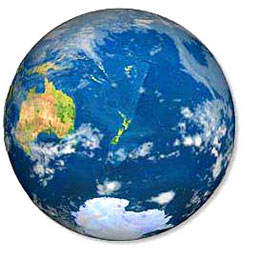Morgan Stanley to invest $3-billion on carbon emission credits
 (Globe & Mail)Morgan Stanley plans to invest up to $3-billion (U.S.) over the next five years in carbon emissions credits and other initiatives outlined under the Kyoto Protocol, an international agreement recently shunned by Canada’s federal government.
(Globe & Mail)Morgan Stanley plans to invest up to $3-billion (U.S.) over the next five years in carbon emissions credits and other initiatives outlined under the Kyoto Protocol, an international agreement recently shunned by Canada’s federal government.In a release from its London office, Morgan Stanley said most of the money will be used to buy carbon credits from the brokerage’s own commodity trading department, which is expanding its carbon and emissions platform. The rest will be invested in projects and initiatives certified under the Clean Development Mechanism and Joint Implementations contained in the Kyoto Protocol.
Simon Greenshields, the managing director and global head of power, associated power fuels and emissions trading and structuring, said Morgan Stanley supports using “market-based solutions to meet environmental policies and objectives.”
Global trading in emissions credits will double to $22 billion in 2006, up from about $11 billion for all of 2005, the World Bank told a carbon market trade fair in Beijing on Thursday.
One hundred and sixty-three countries have signed and ratified the Kyoto Protocol, which calls for a reduction in greenhouse gas emissions in the first phase, slated to end in 2012.
Under the terms of the 1997 agreement, countries are allowed to offset their obligations and earn credits by transferring and funding emissions-reducing technology and programs in other signatory countries. The United Nations oversees the project registration and approval process.
As the 2012 deadlines nears, the buying of the emissions-permitting carbon credits is expected to accelerate. Morgan Stanley is likely betting that it will profit from buying the emissions credits now - and selling them to various governments and industries at a later date.
Other investment banks, such as Germany’s Deutsche Bank, also trade carbon emissions credits. The global carbon market is growing quickly in Europe and in emerging markets. The U.S. has established the Chicago Climate Exchange, which is teaming up with the Montreal Exchange on a new climate exchange in Canada.
Although Canada signed on to the Kyoto Protocol, Prime Minister Stephen Harper’s Conservative government has effectively scuttled this country’s international commitments on global warning in favour of a made-in-Canada plan that critics say falls short.
Meanwhile, the countries that make up the European Union have already implemented a trial phase involving capping and trading of emissions allowances across the industrial and utility sectors and are considering including the air transportation sector.
European Union carbon-dioxide permits for delivery in December fell to their lowest in almost three weeks Thursday as natural gas prices tumbled, according to Bloomberg news. Gas produces about half the amount of carbon emissions as coal does to generate a unit of power.
You can return to the main Market News page, or press the Back button on your browser.

